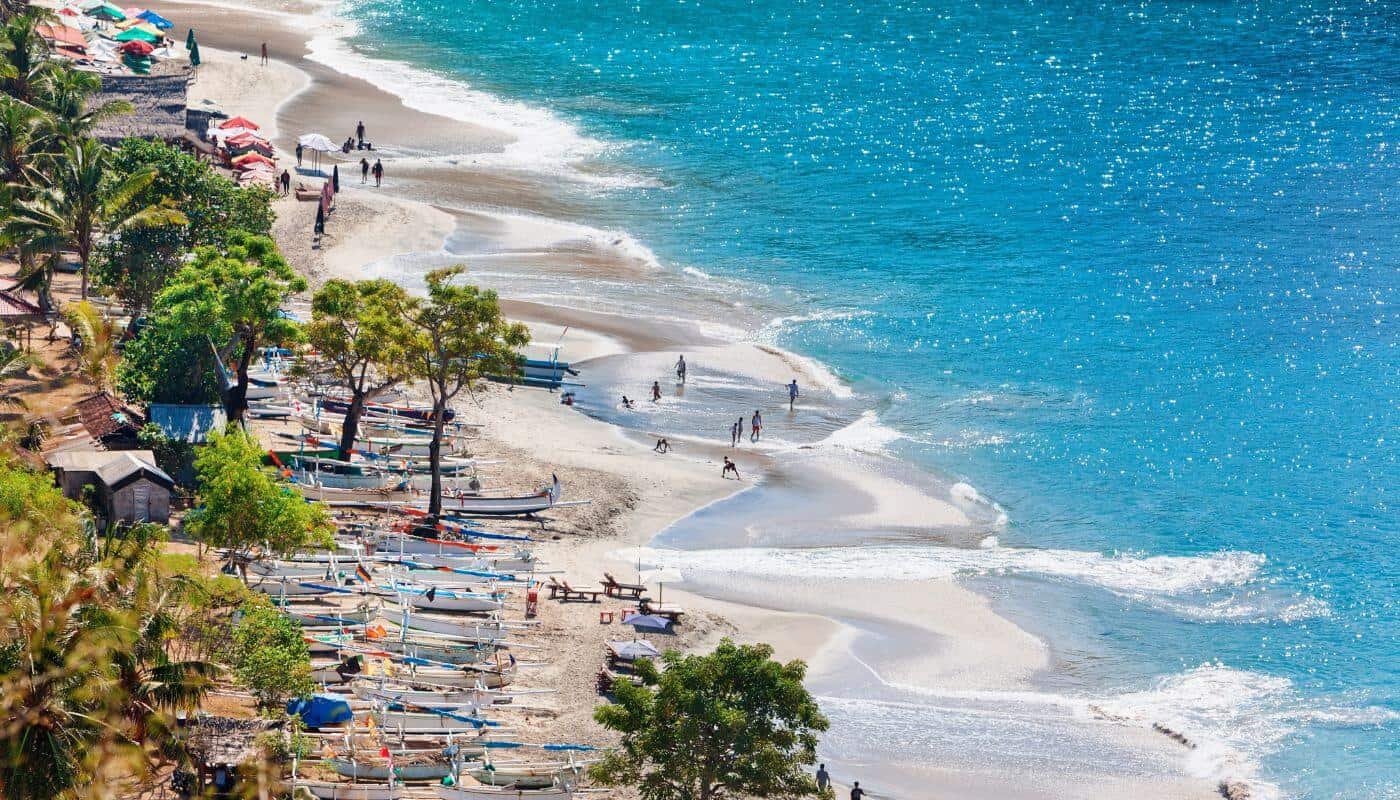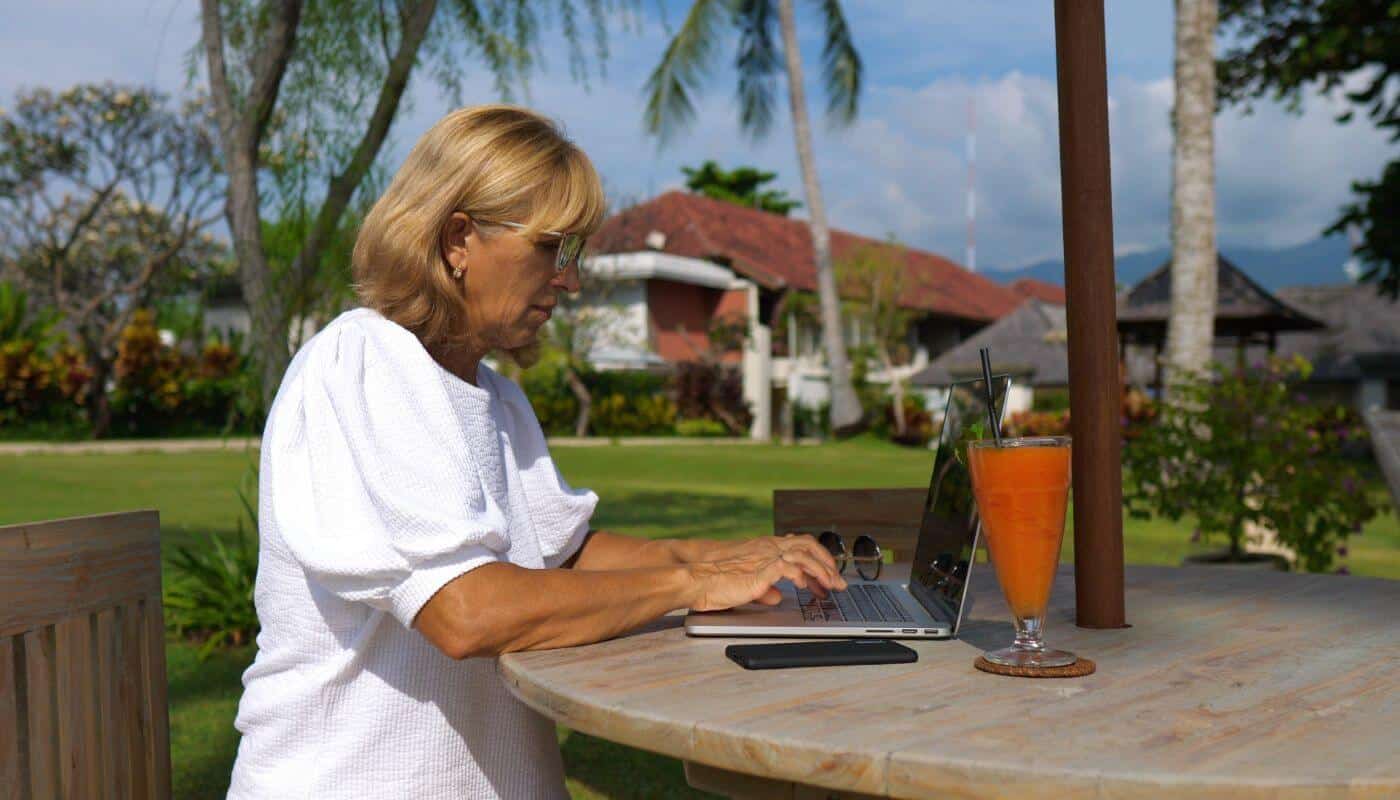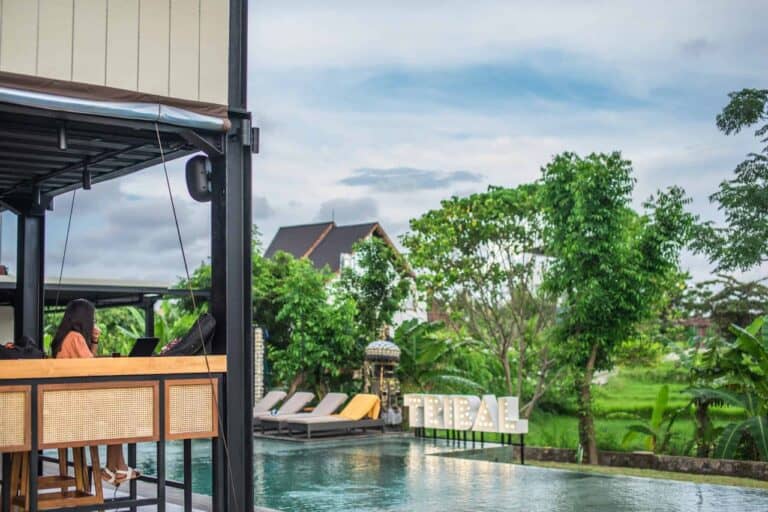We all know Bali is a dream holiday destination at the top of many people’s travel bucket lists. But have you ever thought about retiring in Bali?
Just picture those glittering white-sand beaches, the lush forests and dramatic mountain scenery, the downright amazing food, not to mention the intriguing culture – and you get to live and retire there!
For growing old in total TROPICAL PARADISE, here is everything you need to know.
Everything to Know About Retiring in Bali
This isn’t something you can just jump into. Retiring in Bali needs to be PLANNED and figured out before you get booking your flights and leaving your life behind.
Visa for Retiring in Bali

First things first… visas.
Working out the visa situation for your retirement in Bali is probably one of the most important parts of the whole shebang. A lot of people do move to Bali on visas that are not intended for long stays – we do not recommend this, obviously.
Tourists are able to secure a visa on arrival. It’ll give you 30 days for vacationing on the island, and can be extended to 60 days. Defo not enough time for retirement!
Luckily, there is a specific Bali retirement visa available!
The requirements for this visa are:
- You have to be at least 55 years old
- You must have a passport with six blank pages and validity for at least 18 months
- You need to have (at the very least) USD $18,000 of provable savings
- You must have a property lease for where you’ll be living in Bali. The agreement should be for at least one year
- You must have both valid health and life insurance, either from Indonesia or your home country
- You must be willing to employ two local Indonesians at your accommodation (this could be as a cleaner, gardener or domestic help, etc.)
- You must also have evidence of full Covid vaccination
Citizens from a whole bunch of different countries can apply for this Bali retirement visa. The United Kingdom, United States, Singapore, New Zealand, Australia and Italy, are all able to apply, as well as some other countries.
You aren’t allowed to work on the retirement visa, but hell you are retired! No more working for you!
Healthcare in Bali

If you’re thinking about retiring in Bali, it’s not only the visa that should be on your priority list. You should also be thinking about healthcare.
One of the requirements for securing a Bali retirement visa in the first place is having health (and life) insurance! This isn’t just a part of Bali’s sometimes frustrating bureaucracy (more on that later), it’s a necessity as expats aren’t able to access Indonesia’s public health insurance scheme.
Thankfully, the healthcare in Bali can be of a good standard. The combination of public-run and private healthcare facilities are staffed by experts in their fields with a strong understanding of English to make the care process as smooth as possible.
Of course, some hospitals and medical facilities are better than others. I’d say that local care is totally fine for minor ailments and even some serious treatments (i.e. a broken bone), for more specialist care, you’ll want to head to the international hospitals. Insurance comes in real handy if this sort of thing does happen.
There are some first-rate hospitals located across Bali. You’ll find most of them in the south. These include;
- Bali International Medical Center (Kuta)
- Siloam Hospital
- Bali Mandara Hospital (Denpasar)
- Bali Royal Hospital (Denpasar)
- DIMC Nusa Dua
- Puri Raharja Hospital (Denpasar)
- Sanglah Hospital (Denpasar)
One particularly good thing about these hospitals is that accept international health insurance. They also provide a high standard of care.
Elsewhere, you can still expect to find a good choice of local community hospitals and doctor’s clinics, but remember, your international health insurance may not be accepted. Best to err on the side of caution and go where your insurance matters.
The cost of medical care in Bali varies depending on what treatment you’re having. A doctor’s consultation, for example, can cost between $20-$50. You’ll notice more choice of over-the-counter medicines than in your own country. You can get general antibiotics and pain killers without a prescription.
Staying healthy while in Bali is pretty easily done, and can help reduce the need for medical assistance. But insurance is still highly recommended!
Wondering about dental treatment? Or opticians? They’re also pretty affordable in Bali. Which brings us neatly to…
Cost of Living in Bali

It’s the elephant in the room. A lot of people dream of retiring in Bali. But is it affordable?
In general, the cost of living in Bali is much cheaper than in many Western nation. I you don’t have a huge pension or savings to fall back on, you can still enjoy a good life in Bali.
Obviously the cost of living in Bali as a retiree will vary. It’ll depend on your lifestyle – living in luxury in high-end accommodation and enjoying burgers, poke bowls and salads all the time, compared to affordable local home living with locally sourced groceries and warung meals.
But generally, your potential monthly expenses will include;
Accommodation
A private villa in Bali starts at around $1,300 per month. This is on the more luxe side of things for those who want their own private space and gardens.
There are many other kinds of accommodations available that could keep your costs down. You can rent an apartment for around $300 per month (depending on the area).
Utilities
The electricity around the island is most often paid on a meter which you will need to top up. Older properties will work on a billing system.
Depending on the size of your property, whether you have a pool, air-cons etc, you can budget between $50 – $150 per month.
Transport
Motorbikes are the way to get around Bali.
You can rent a bike for around $5 per day, but if you’re planning a long stay on the island you’ll want something more permanent. Many expats buy their own bikes! A budget bike will cost $700-$1,400, while fuel is about $0.50 per litre.
Be sure you have the right international driving license to be a legal road goer!
You can get yourself a car, but be ready to be stuck in heavy traffic and be tackling really small little roads.
Food
The food in Bali is reason alone to spend your retirement on the island. You can find EVERYTHING, at a reasonable cost and its all just super delicious.
You can get a good meal for around $10, even cheaper if you choose to dine at local warungs! Closer to $3!
Even relatively fine dining in Bali can be as cheap as $20 per person.
Don’t want to eat out all the time? A monthly grocery bill for home cooking with fresh local ingredients will only cost you around $100 (just stay away from those tempting imported brands ;))
Staff
The last cost that’ll be on your monthly budget will be staff. As part of your visa requirements you are obligated to hire at least 2 Indonesians!
The kind of staff you require will depend on your accommodation – a housekeeper, gardener, pool cleaner and maintenance are super useful options. You may also want to consider a driver if you aren’t planning to get yourself around.
As of 2023, the minimum wage in Bali is IDR2,500,000 for a full time employee. You can discuss and negotiate your rates with the workers directly, but ensuring a good living wage will make the relationship fair and beneficial for both parties.
Where to Stay When Retiring in Bali

There’s a HUGE list of potential spots to base yourself when retiring in Bali.
These 3 areas are a few of the most popular, and suitable places for a more laid-back, relaxed life. Take a look!
Sanur
Sanur is one of the most popular areas in Bali for retirees. A laid back spot with much less traffic and general tourist hustle and bustle, you can cycle the board walk, spend days on the perfect white sand and dine in a selection of Western restaurants or local warungs. For those who dream of a beachfront retirement, Sanur is the spot to go!
Seminyak
Living in Seminyak during your retirement in Bali will ensure amazing food options, lots of shopping and action, plenty of events and the never ending flow of tourists. With beaches nearby, shopping malls, all kinds of cafes and restaurants and a more Western inspired vibe, Seminyak is great for those who love to be among the action.
Umalas
Umalas is a more residential area that is slowly building up to have a nice collection of quaint cafes and restaurants. On the edge of Seminyak and Canggu, you can have easy access to the top towns while still having a touch of regular, daily life. Find yourself a modest little villa in Umalas and have a home just steps from rice paddies!
Pros and Cons of Retiring in Bali

It seems like everything is a dreamland in Bali, doesn’t it? That’s not necessarily the case..
Let’s round up this guide of how to retire in Bali with some pros and cons.
Pros of Retiring in Bali
- Incredible culture: The culture in Bali is one of the most unique in the world with impossibly friendly locals, magnificent, vibrant celebrations and an inclusive, welcoming community. With so many cultural highlights throughout the year, you won’t get bored!
- Affordability: The low cost of living in Bali will play in your favour when planning a long term stay on the island. Renting, eating out and getting about is all much more affordable. That being said, be sure you pay your way to make sure you don’t take advantage of the island!
- Relaxed way of life: Bali is famously easy going. The way of life is so much lighter and simpler – especially if you aren’t going to be working 😉 Live your life on Bali time!
- Climate: Paradise weather seems like a dream come true for retirement. Bali does have a wet season, but the majority of the year is filled with MEGA sun and tropical breezes. Humidity will keep you young!
Cons of Retiring in Bali
- Healthcare: Having private health insurance is a kick in the budget when you’ve lived off social healthcare your whole life. Still, better safe than sorry!
- Distance: It’s likely when moving to Bali you will be leaving behind some kind of family or friends. Being away can be stressful and a little sad, you’ll miss life events and celebrations. Be sure to have enough savings to book a ticket home at all times – just in case!
- Tourists: There is a steady flow of tourists coming and going from the island all year round. Some times are quieter than others, but always be prepared for some kind of tourist crowds!
Final Thoughts
You’ve worked hard all your life, you deserve to let go and have the retirement of your dreams! And Bali is a dream come true!
Retiring in Bali will have you sun soaking and beach visiting every darn day if you so wish. Bask in the magical culture and religion of the island and enjoy making friends with the incredible locals. Being part of the community should be a top priority!
What do you think? Is moving to Bali in your retirement plans now?
Featured image: Retirement




